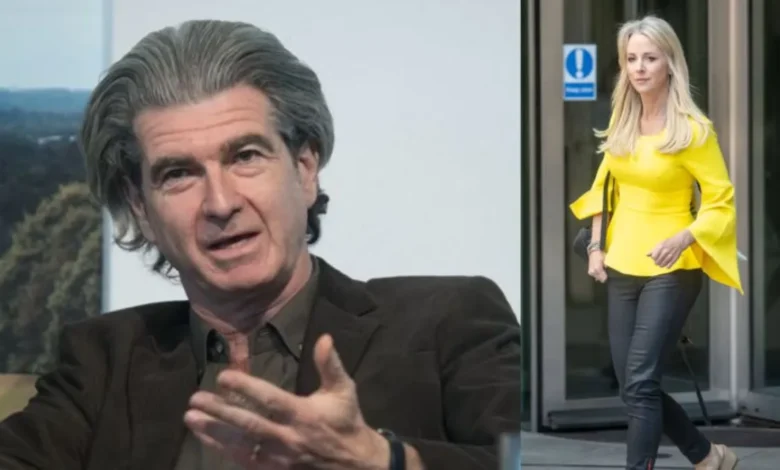Nigel Rosser: The Visionary Behind the Caravan Writers’ Guild

Introduction
In the realm of media and public relations, few individuals have made as significant an impact as Nigel Rosser. His career, marked by exceptional achievements in journalism and public relations, is one of vision, leadership, and a deep understanding of the power of storytelling. While his work spanned multiple facets of media, his influence within the Caravan Writers’ Guild is particularly noteworthy. Through his dedication and foresight, Rosser not only transformed how caravanning journalism was perceived but also fostered a community of writers and professionals who shared his passion for the industry.
This blog post will explore the life, career, and legacy of Nigel Rosser, highlighting his transformative contributions to both journalism and public relations, as well as his pivotal role in the Caravan Writers’ Guild.
Early Career and Transition to Public Relations
Nigel Rosser’s journey into journalism was neither accidental nor conventional. From the outset, he demonstrated a keen interest in storytelling—an attribute that would guide his career. Rosser began his professional journey in local newspapers, where he quickly developed a reputation for his diligent investigative work and his ability to craft narratives that were both compelling and thoroughly researched. Early in his career, Rosser’s commitment to integrity in journalism set him apart, earning him respect among his peers.
As his career progressed, Rosser transitioned from traditional journalism to public relations, recognizing that effective communication required a broader skill set that blended storytelling with strategic messaging. His journalistic background became an asset as he approached public relations with the same critical eye and commitment to factual accuracy that had characterized his writing. His shift into media consultancy enabled him to advise organizations on how to manage their public image, communicate with their audience, and navigate the complexities of crisis communication. This seamless transition exemplified his versatility and foresight, paving the way for his future success in the public relations sector.
Leadership in the Caravan Writers’ Guild
One of Rosser’s most lasting contributions to journalism was his leadership in the Caravan Writers’ Guild. The Guild, established to support writers and journalists in the caravanning industry, became a cornerstone of the caravan lifestyle community under Rosser’s guidance. His role as chairman provided a platform for writers to collaborate, share their knowledge, and elevate the quality of content within this niche sector of journalism.
Building a Collaborative Community
During his tenure as chairman, Rosser transformed the Guild into a vibrant community that fostered collaboration between journalists, industry professionals, and readers. His leadership style emphasized the importance of educational initiatives, including workshops, seminars, and networking opportunities, all designed to elevate the profession. Under his stewardship, the Guild became a resource not only for journalists but also for anyone interested in the caravanning lifestyle.
Rosser’s ability to cultivate relationships within the industry allowed him to raise the profile of caravan journalism. By focusing on the unique needs and interests of caravanners—those who seek adventure, freedom, and connection with nature—Rosser helped position the Guild as an authoritative voice in a field that was often overlooked by mainstream media.
Advocacy for Caravanning Culture
Beyond his organizational leadership, Rosser was a vocal advocate for the caravanning lifestyle. He recognized that caravanning was more than just a hobby; it was a lifestyle choice that fostered a deep sense of community and a connection to the natural world. Through his writing and leadership, Rosser brought attention to the joys and challenges of caravanning, advocating for responsible and sustainable practices. His efforts ensured that the broader public recognized the value of this lifestyle, both as a form of recreation and as a significant aspect of modern life.
The Role of Public Relations in Rosser’s Career
In addition to his work in journalism and the Caravan Writers’ Guild, Nigel Rosser made a significant impact in the world of public relations. As a public relations professional, Rosser excelled in strategic communication, helping organizations craft their public image, engage with audiences, and navigate challenges. His ability to build and maintain trust with clients and the public made him an invaluable asset to many organizations.
Rosser’s experience in journalism was a strong foundation for his work in PR. As a journalist, he had learned the importance of accuracy and authenticity in storytelling, principles that he carried with him into his PR work. Whether managing media relations, handling a crisis, or creating a compelling brand narrative, Rosser’s approach was always rooted in transparency and credibility.
Crisis Management and Media Consultancy
Rosser’s expertise in crisis communication became one of his most sought-after skills. His ability to manage sensitive situations—whether related to public image, corporate scandals, or product recalls—was a hallmark of his public relations career. Rosser knew that in times of crisis, the key to maintaining a positive reputation was clear and honest communication. He applied this same philosophy to his media consultancy work, advising organizations on how to engage with the press and the public in a way that aligned with their core values.
Nigel Rosser’s Legacy and Influence
Nigel Rosser’s impact on journalism and public relations extends far beyond his career achievements. His leadership in the Caravan Writers’ Guild transformed the field of caravanning journalism, ensuring that it was taken seriously as a legitimate and valuable niche. His efforts to create a community of like-minded writers have left a lasting legacy, providing a platform for journalists in the field to collaborate and share their work.
His work in public relations also continues to influence the industry. Rosser’s approach to communication—centered around honesty, integrity, and a deep understanding of the power of storytelling—has set a standard for others to follow. His ability to build relationships and trust with clients, the media, and the public has become a model for aspiring PR professionals.
Lessons from Nigel Rosser’s Career
There are several key lessons that can be learned from Nigel Rosser’s multifaceted career. First, Rosser’s ability to adapt to new challenges—moving from journalism to public relations—demonstrates the importance of flexibility in the ever-changing landscape of media and communication. His success also underscores the value of building strong relationships and maintaining authenticity in all forms of communication.
Additionally, Rosser’s work emphasizes the importance of community building in professional fields. By fostering collaboration among journalists and industry professionals, he created a space where people could share knowledge, learn from one another, and grow together. His work reminds us that no profession is an island; it thrives when there is support, sharing, and collective growth.
Conclusion
Nigel Rosser’s career serves as an inspiring example of how vision, leadership, and dedication to authenticity can shape both an industry and a community. His transformative contributions to journalism, public relations, and the Caravan Writers’ Guild have left an indelible mark, making him a true pioneer in his fields. As a visionary leader, Rosser understood the power of storytelling, the importance of relationships, and the need for integrity in all communications. His work continues to serve as a benchmark for professionals in both media and public relations, offering timeless lessons on how to navigate the complexities of communication with skill, strategy, and authenticity.
In examining Nigel Rosser’s life and work, we are reminded of the importance of vision, adaptability, and community in building a successful and lasting career. His legacy is not just in the work he did, but in the way he shaped the industries he touched and the people he inspired.




